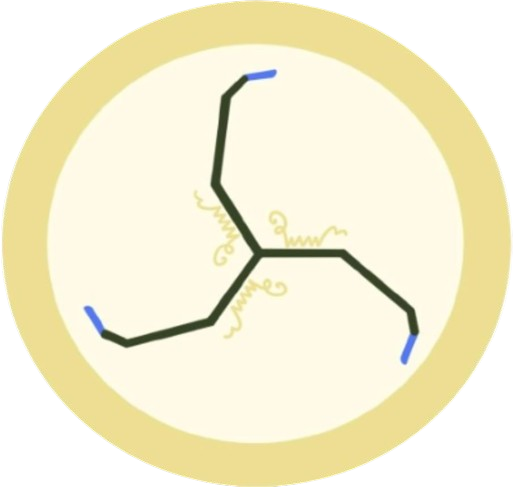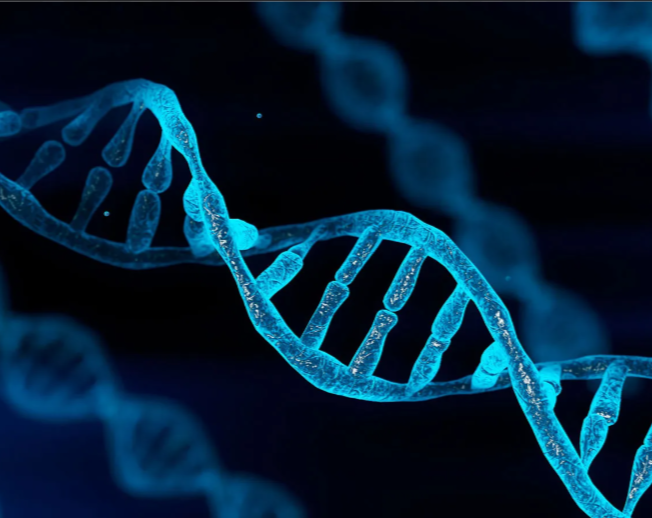Epigenetics is a field of biological study that looks into gene expression, and the factors that affect it. It’s what helps distinguish what functions each cell will have; because while they all have the same base DNA sequences, the genes that are expressed are different.
Gene expression is regulated by ‘turning on’ or ‘turning off’ genes accordingly, so only the ones required for that cell’s function remain. This task is accomplished in one of three main ways :
1. DNA Methylation
On specific sites along the DNA, methyl groups are added, which block proteins from reading the gene. This turns that gene off, preventing it from passing information to other structures. The opposite is demethylation, which removes the methyl group, allowing the gene to pass information again.
2. Histone modifications
Histones are proteins that our DNA wraps around. Depending on how tightly or loosely they are packed, the accessibility of certain genes change. This leads to inaccessibility to the gene, preventing it from being read.
3. Non-coding RNA
Non-coding RNA can trigger one of the two processes above, or turns off the gene on its own. It breaks down its counterpart, Coding RNA (used to make proteins), so it can’t be used to synthesise proteins.
Factors affecting epigenetics
We’ve delved into how gene expression is modified, but what are the factors that trigger DNA methylation or Histone modification? And more importantly, what is the type of timeline for these changes?
An article by Harvard University states that apart from normal changes to distinguish cell function, child-specific changes occur as early as foetal stages. Experiences such as improper nutrition during pregnancy, exposure to drugs or toxins, and toxic stress cause negative epigenetic changes that become embedded into the developing brain. The article stresses the importance of a healthy familial environment and nutrition before and right after birth — these factors play an important role in inducing epigenetic changes that could increase or decrease risk for disorders and diseases. They ‘leave an epigenetic signature’ that affects the ability to turn on or turn off genes.
Habits such as smoking are also reported to cause epigenetic changes. According to the CDC, smokers have less methylation on certain parts along the AHRR gene as compared to non-smokers. Age also affects methylation, with the rate decreasing as age increases.
How is health affected by epigenetics?
Some germs, such as Mycobacterium tuberculosis (causes tuberculosis) induce epigenetic changes to help them survive. This specific germ turns off the IL-2B gene, which weakens the immune system.
Cancer risk is also affected by epigenetic changes. If there is increased DNA methylation, that decreases expression of the BRCA-1 gene, risk for breast and other cancers increases. Epigenetic markers can also act as a key to distinguish between different types of cancer (by observing methylation patterns).
Epigenetics is a very promising field, and can reveal a lot about a person’s health and disease risk. It can be leveraged as a powerful tool in diagnosis; and for cases like cancer, can result in life-saving early prediction.
– Medha Gopalakrishnan
Sources:
- https://developingchild.harvard.edu/resources/what-is-epigenetics-and-how-does-it-relate-to-child-development
- https://www.nature.com/scitable/topicpage/epigenetic-influences-and-disease-895/
- https://www.cdc.gov/genomics/disease/epigenetics.htm#:~:text=Epigenetics%20is%20the%20stu
dy%20of,body%20reads%20a%20DNA%20sequence.
*Disclaimer: This article has also been posted to our Medium. NernstNaK is the rightful owner of this work on both our website and Medium, and thus stresses that there has been no plagiarism or copying on either account.*

